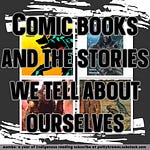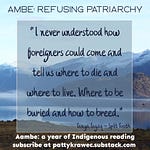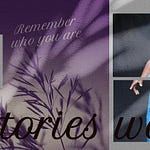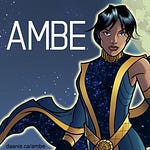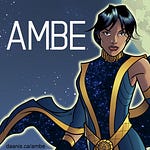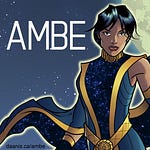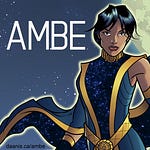I encountered Richard Wagamese ba shortly after I found my father, which was in my late 20s. My mother had moved us down south after they separated and I was raised with my maternal family, Ukranians who had come to Canada as refugees. They loved me, but I was the brown child in the white family. The fact that they loved me did not change the loss that I felt. I had no contact with my paternal family who lived, as I thought all Indians did, far away from me in the northwest. I had no idea that there were several reserves within just a few hours of me including Anishnaabe reserves. I thought I was all alone. I was alone.
The first book I read was Keeper ‘n Me in which Garnet Raven is taken from his family at 3 years old and raised in foster care. There is one scene in which Garnet is playing cowboys and Indians with the other children and they want him to be the Indian and he becomes distraught because he doesn’t know how.
I didn’t know how.
Richard ba also found his family in his mid 20s, just as I did, and began that journey to find place and home and belonging that is anything but linear. It goes back and forth between connection and loss, between hope and grief, between belonging and being a tourist in your own community. The things we learned about native people were the same things that everyone else learned, all those stereotypes that are probably flooding your brain right now. The difference being that when we looked in the mirror we saw those things like tattoos. We saw them inscribed in our features, marks that wouldn’t wash off.
His final books, Medicine Walk and Starlight, reveal a different man than his earlier works. One who has accepted himself and his relationship with the world around him and I feel that too. I feel that knowing, not all the time .. it’s still elusive and transitory but it is there and if I quiet myself I can feel the threads that tie me here.
Whether you have read all of his books or just one, whether you know him only from the movie Indian Horse and wish you knew him better, I hope you enjoy this discussion.
The panel:
Jenessa Galenkamp is a citizen of the Métis Nation. Originally from Tiny, Ontario by the shores of Georgian Bay, She now lives and works in St. Catharines. She spends her 9-5 working as an executive administrative assistant, and her weekends in the summer are often spent photographing weddings. When not working, Jenessa loves hiking with her partner, playing cribbage, reading, chilling with their two cats, Eleanor Rigby and Penny Lane, or working out ways for her church community to become better relatives with the broader community and learning as she goes.
Daniel Delgado is Quechua runa and Jewish. He is a writer with varied and overlapping interests in fantasy, journalism, deep ecology, and decolonization. Daniel was previously on the podcast I host, Medicine for the Resistance, where we talked about the Quechua and Jewish cosmologies and holding onto your histories while living in diaspora. One thing that stayed with me is the idea of multiple worlds and inevitable shifts in how the world is structured, these shifts are inevitable and it is our responsibility to be ready.
Dalton Walker, Red Lake Anishinaabe, is an award-winning journalist based in Phoenix. He is the deputy managing editor at Indian Country Today. Before Indian Country Today, Dalton was the senior reporter at O’odham Action News in the Salt River Pima-Maricopa Indian Community in Arizona. Dalton has worked at The Gazette in Colorado Springs, Sioux Falls Argus Leader and Omaha World-Herald.
Dalton is a speaker and presenter to various local academic institutions concerning journalism and Native youth empowerment. He served on the Native American Journalists Association board of directors from 2013-2016. Follow him on Twitter @daltonwalker
Raven Sinclair is a member of Gordon First Nation of the Treaty #4 area of southern Saskatchewan. Raven has been with the faculty since July 2005. Raven was previously on faculty with the First Nations University of Canada, and has taught at Masckwacis Cultural College, and the access division of Calgary’s Faculty of Social Work. She is a founding editorial member of Indigenous Voices in Social Work (UHawaii), and a regional editor for AlterNative: An International Journal of Indigenous Peoples.
Raven’s academic and research interests include Indigenous knowledge and research methodologies, the synthesis of traditional and contemporary healing theories and modalities, aboriginal cultural identity issues, adoption, colonial and decolonization theories, and mental health and wellness. She particularly enjoys facilitating workshops in interpersonal communication based on an accountability model.
Raven owns Resonance Counselling, Coaching, and Consulting in Saskatoon.
Shelagh Rogers is a broadcaster for more than 40 years, Shelagh has won the John Drainie Award for Significant Contribution to Canadian Broadcasting. She has worked on programs such as Morningside, The Arts Tonight and This Morning. She has been an advocate for people with mental illness for more than a decade, often speaking about her own depression. The Centre for Addictions and Mental Health (CAMH) presented her a Transforming Lives Award in 2008. She was named a Champion of Mental Health in 2009. In 2010, she received the Hero Award from the Mood Disorders Association of Ontario and the 2010 Voices of Mental Health Award from CMHA BC. In 2016, she was the inaugural recipient of the Margaret Trudeau Award for Mental Health Advocacy.
In 2011, she was named an Officer of the Order of Canada for promoting Canadian culture, for advocacy in mental health, truth and reconciliation, and adult literacy. That same year, she was inducted as an Honorary Witness for the Truth and Reconciliation Commission, a role she committed to for the rest of her life. Shelagh is a co-editor of the series of the Speaking My Truth books about truth, justice and reconciliation published by the Aboriginal Healing Foundation. She has received the Achievement Award from Native Counselling Services of Alberta. She holds honorary doctorates from six universities, and is the Chancellor of the University of Victoria.
Shelagh revels in stories and like Richard Wagamese, believes we can change the world, one story at a time.





